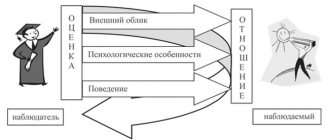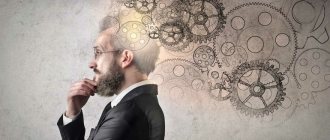Despite all the variety of forms and methods of knowledge, it has only two levels: theoretical and empirical. Theoretical knowledge is based on logical conclusions and mathematical calculations, and empirical knowledge is based on interaction with the object being studied. These levels are often contrasted, but both are equally important for most modern scientific disciplines. Today we will talk about what empirical knowledge is, consider its methods and functions, and also analyze in detail how it differs from theoretical knowledge.
What is empirical knowledge?
Empirical knowledge is knowledge based on direct research of real objects and phenomena. The main source of knowledge at this level is sensory sensations that arise when interacting with the objects being studied. Despite the existence of different ways of perceiving the external world, the main source of empirical knowledge is contemplation.
This level involves such types of cognitive activity as:
- collection and primary synthesis of facts;
- drafting statements and descriptions;
- accumulation of information obtained during observations;
- systematization and classification of information.
Empiricism as a direction of epistemology arose in the 17th and 18th centuries. Supporters of this direction believed that only sensory knowledge and experience are sources of true knowledge.
In the scientific world, empirical knowledge is the accumulation of information about the objects and phenomena being studied through experiments and observations. This involves both visual observations and all kinds of measurements. Also at this level, it is possible to construct empirical patterns (that is, patterns for which a theoretical explanation has not yet been found, but their existence has been experimentally proven).
Empirical level of scientific knowledge
The main task of the empirical level of scientific knowledge is the description of objects and phenomena, and the main form of acquired knowledge is an empirical (scientific) fact.
Empirical knowledge, empirical data are not identical to the sum of sensations or perceptions. This is a special type of knowledge that is the result of lengthy pre-processing, observations, data summarization devices, and experiments. The task of the empirical level of knowledge is to obtain scientific facts; its formation is associated with the dialectical interaction of the sensory and rational in the process of empirical knowledge.
Empirical research is aimed directly at the object and is based on observational and experimental data. At this level, sensory cognition predominates as living contemplation. There is a rational moment and its forms (concepts, judgments, etc.), but they have a subordinate position. Therefore, at the empirical level, the object of research is reflected mainly from its external connections and manifestations, accessible to living contemplation.
In addition to observations and experiments, empirical research uses such tools as description, comparison, measurement, analysis, and induction. The main element of empirical research and the form of scientific knowledge is fact.
In modern scientific methodology, there are two polar positions in understanding the essence of a fact - factorism, which emphasizes the autonomy and independence of facts in relation to various theories, and theorism, which, on the contrary, asserts that facts are completely dependent on theory, and when theories change, the entire factual the basis of science.
The correct solution to the problem is to recognize that a scientific fact, having a theoretical charge, is relatively independent of theory, since it is based on material reality. In scientific knowledge, the totality of facts forms the empirical basis for hypotheses and the formation of theories. The task of a scientific theory is to describe facts, explain them, and also predict previously unknown ones.
Facts play an important role in testing, confirming and refuting theories: Correspondence to facts is one of the basic requirements of scientific theories. The discrepancy between theory and fact is considered the main drawback of the theoretical system of knowledge. At the same time, there is no reason to consider a theory refuted if it contradicts one or more individual facts, since such a contradiction can be eliminated during the development of the theory or the improvement of experimental techniques.
Basic empirical methods of scientific knowledge:
- observation - purposeful passive study of objects, relying mainly on data from the senses. Observation involves minimal interference in the activity of the object and maximum reliance on the natural senses of the subject. At the very least, aids to the observation process, such as various instruments, should enhance sensory discrimination only in quantitative terms. It is possible to distinguish between different types of observations, for example, armed (using instruments, for example, a microscope, telescope) and unarmed (no instruments are used), field (observation in the natural environment of the object) and laboratory (in an artificial environment). Observation gives the subject of knowledge extremely valuable information about the object, which, as a rule, cannot be obtained in any other way. Observational data is extremely informative and provides unique information about an object that is unique to that object at that time and under those conditions. The results of observations form the basis of facts, and facts, as we know, are the air of science.
- An experiment is an active and purposeful intervention in the course of the process under study, its reproduction in specially created and controlled conditions; in an experiment, the subject of knowledge is not limited to the role of a simple recorder of events, but tries to actively influence the object of knowledge. This requires conditions that allow such an impact to be realized, therefore, as a rule, the experiment proceeds from the creation of more or less specific conditions for the existence of an object, up to its removal from the natural environment and placement in an artificial environment.
- Comparison is a cognitive operation that reveals similarities or differences between objects (or stages of development of the same object).
- Description - A record of an observation or experiment using specific notation systems used in science. 5.
- Measurement is a set of activities performed using measuring instruments to find the numerical value of the measured quantity in accepted units of measurement. The measurement process presupposes the existence of an object to be measured and a scale on the basis of which the measurement is made. The scale is a special mathematical structure with a set of elements, operations and connections for these elements. Measurement is the process of assigning an object to one or another element of a scale. Such a process can also be called quantitative - establishing quantitative definitions of an object.
Empirical methods of scientific knowledge are guided by certain conceptual ideas.
In the social and human sciences (history, sociology, archeology, political science, cultural studies, social psychology, etc.), in addition to philosophical and general scientific methods, specific methods are used:
- ideographic - description of the individual characteristics of individual historical facts and events;
- dialogue (question-answer method);
- Understanding;
- Introduction (self-observation);
- empathy (in feelings) - perception of the inner world of another person;
- tests; surveys and interviews;
- projection methods;
- biographical and autobiographical methods;
- social experiments and social modeling;
- role-playing games and simulations.
However, we understand that in any type of empirical knowledge there are no purely empirical methods, because even simple observation requires preliminary theoretical foundations - choosing an object of observation, formulating a hypothesis, etc. But this does not prevent the formation of objectively true empirical knowledge, but is a condition for such formation.
The main form of knowledge at the empirical level is a fact, a scientific fact, factual knowledge, which is the result of primary processing and systematization of observational and experimental data. The basis of modern empirical knowledge is the facts of ordinary consciousness and the facts of science.
Theoretical level of scientific knowledge
The theoretical level is a higher level of scientific knowledge, the purpose of which is the formation of theoretical laws that meet the requirements of generality and necessity, operating everywhere and always. The result of theoretical knowledge is hypotheses, theories, laws.
The theoretical level of knowledge and science is associated with the fact that an object is represented on it from the side of its connections and patterns, which are obtained not only and not so much in experience, during observations and experiments, but already during the autonomous process of thinking. Through the application and construction of special abstractions of reason and understanding as hypothetical elements with the help of which the space of understanding the essence of phenomena and reality is filled.
In the sphere of theoretical knowledge, constructions (idealizations) arise in which knowledge can go far beyond the limits of sensory experience, observational and experimental data, and even come into sharp conflict with direct sensory data. Theoretical knowledge reflects phenomena and processes from their universal human internal relations and patterns, which are captured through rational processing of empirical knowledge data. This processing is carried out using conclusions, laws, categories, principles.
An integral part, the most characteristic feature of theoretical knowledge is the use of the following methods:
- as an abstraction - an abstraction of minor features of the object of study,
- idealization - the creation of often simple objects of thought,
- analysis - mental decomposition of the object under study into elements,
- synthesis - a combination of elements obtained as a result of analysis into a system,
- induction - the movement of knowledge from ordinary to general,
- deduction is the movement of thought from the general to the ordinary.
The theory is constructed in such a way that it describes idealized objects, and not the surrounding reality. Idealization is the basic logical operation of theoretical thought. Its goal and result is the creation, construction of a special type of objects - idealized objects with which it is necessary to work, which is an essential feature of theoretical knowledge.
The theoretical level of scientific knowledge is the development of mental models of the process under study, which are designed to generalize and explain the existing facts and empirical laws. At this level, the researcher operates with idealized objects, the properties and relationships of which generalize the essential properties and relationships of objects in reality. Its specific methods are idealization, formalization, axiomatization, thought experiment, hypothetico-deductive. Knowledge (hypothesis, theory, law) that arises at this level not only explains existing empirical material, but also contributes to its increase, performing predictive and methodological functions.
Theoretical research is associated with the improvement and development of the conceptual apparatus of science and is aimed at comprehensive knowledge of reality in its basic relationships and patterns. This level of scientific knowledge is characterized by the predominance of rational forms of knowledge - concepts, theories, laws and other forms of thinking.
Sensory perception as living contemplation is not excluded here, but becomes a subordinate (but very important) aspect of the cognitive process. Theoretical knowledge reflects phenomena and processes from their universal human internal relations and laws, which are understood through rational processing of empirical research data.
Considering theoretical research, we can distinguish the following structural components - problem, hypothesis and theory.
- Problem . The first stage of the scientific knowledge cycle is problem formulation. When setting a problem, it is necessary, firstly, to recognize the situation as a problem, and secondly, to clearly understand the meaning of the problem, its formulation with the distinction between the known and the unknown. empirical-theoretical scientific knowledge.
- A hypothesis is a scientifically sound assumption based on facts, a conclusion that has the goal of solving a scientific problem and is probabilistic in nature. First of all, the quality of a hypothesis is determined by the degree of its ability to cover both the range of phenomena being studied and others, including newly discovered ones. The strength of a hypothesis is also measured by the extent to which it is able to predict new facts.
- A theory , unlike a hypothesis, is no longer a probable find, but an established one. A scientific theory is a system of knowledge that describes and explains a certain set of phenomena, substantiates all statements and puts the laws discovered in this area on a common basis. For example, the theory of relativity, quantum theory, theory of state and law.
Main features of scientific theory:
- Scientific theory is knowledge about a certain subject or a strictly defined, organically related group of phenomena. The integration of knowledge into a theory is determined by its subject matter;
- its most important feature is the explanation of a known set of facts, and not their simple description, showing the patterns of their action and development
- the theory must have predictive power and predict processes
- all important theories must be united by a common basis
- all theories had to be justified.
The theoretical and empirical levels of scientific knowledge are closely interrelated. Empirical research, revealing new observational and experimental data, stimulates the development of theoretical research and poses new challenges for it. Theoretical research, developing and specifying the theoretical content of science, opens up new perspectives for explaining and predicting facts, and directs and guides empirical research.
Science as an integral dynamic system of knowledge can develop successfully only if it is enriched with new empirical data and generalizes them in a system of theoretical means, forms and methods of cognition. At certain moments in the development of science, the empirical turns into the theoretical and vice versa. It is unacceptable to absolutize one of these levels to the detriment of the other.
Methods of theoretical knowledge:
- Axiomatics - consists of constructing a scientific theory based on axioms and rules for the derivation of information. The axiom does not require logical proof and cannot be refuted by empirical facts. This leads to an absolute refutation of all the contradictions that have arisen;
- Hypothetical - deductive - is based on the construction of a scientific theory on hypotheses, that is, on conclusions that can be refuted by comparing data with actual experimental facts obtained. This method requires excellent mathematical training at the highest level;
- Descriptive methods of theoretical knowledge are graphic, verbal and schematic methods of knowledge based on experimental data.
Theoretical methods of scientific knowledge are more clearly manifested in thinking, since this is an active process that can generalize and reflect real reality, moving from thinking to a specific understanding of the phenomenon or process being studied.
Interweaving empirical and theoretical levels of knowledge. If the source of the content of empirical knowledge is information about objective reality obtained as a result of observation and experiments with it, then the source of the content of theoretical knowledge is information about ideal objects that are products of constructive mental activity. The content of theoretical knowledge is an immanent product of consciousness itself, while the content of empirical knowledge depends only partly on consciousness and partly on material reality, which is independent of it (and always remains a mystery to consciousness).
Theoretical knowledge is a complex structure consisting of statements of various levels of generalization.
- The most general level is axioms, theoretical laws. For classical mechanics, for example, these are Newton’s three laws (inertia; the relationship between force, mass and acceleration; equality of action and reaction forces).
- The second, less general level of scientific theory is the particular theoretical laws that describe the structure, properties and behavior of ideal objects constructed from initial ideal objects. For classical mechanics, for example, these are the laws of motion of an ideal pendulum.
- The third, least general level of developed scientific theory consists of particular, unified theoretical provisions about the properties and relationships of some ideal objects.
Empirical and theoretical types of knowledge differ not only in means, but also in methods of research activity.
At the empirical level, the main methods used are real experiment and real observation. Methods of empirical description also play an important role, which focus on the objective characteristics of the phenomena under study and are maximally freed from subjective layers.
As for theoretical research, special methods are used here:
- Idealization (method of constructing an idealized object);
- mental experiment with idealized objects;
- special methods of theory construction (ascending from the abstract to the concrete);
- methods of logical and historical research, etc.
All these features of tools and methods are associated with the features of the object of empirical and theoretical research. At each of these levels, the researcher can deal with the same objective reality, but studies it in different thematic sections, in different aspects, and therefore its vision, representation in knowledge will be given in different ways.
By studying phenomena and connections between them, empirical knowledge can reveal the operation of an objective law. But usually it fixes this action in the form of an empirical dependence, which should be distinguished from theoretical law as special knowledge obtained as a result of the theoretical study of objects.
Empirical dependence is the result of the inductive transfer of experience and represents probabilistic true knowledge. A theoretical law, on the other hand, is always reliable knowledge. Obtaining such knowledge requires special research procedures.
It should be emphasized that an increase in the number of experiments in itself does not lead to a reliable empirical relationship, since induction is always an incomplete, imperfect experiment. No matter how many experiments we conduct and no matter how much we generalize, simple inductive generalization of experimental results does not lead to theoretical knowledge. The theory is not built by inductive generalization from experience.
Thus, the empirical and theoretical levels of knowledge differ in the subjects, means and methods of research. In reality, these two levels of cognition always interact.
Methods of empirical knowledge
The following methods are used at this level:
- Observation. This is an organized study of an object in natural conditions. At the same time, there should not be any significant impacts on the object and the environment in which it exists, otherwise the data obtained may be inaccurate or unreliable. In addition, the objectivity of the information is important, so the observer must record all relevant facts, and not just those that seemed interesting to him personally.
- Experiment. The main difference between an experiment and an observation is that the researcher can influence the object and the environment by deliberately creating the conditions of interest to him. At the same time, the results of the experiment must also be objective and impartial. An important requirement for experimental data is repeatability (another researcher conducting a similar experiment under completely recreated conditions should obtain the same results).
- Comparison. This method allows you to identify similarities and differences between two objects. Comparisons are made only for characteristics that are significant for this study. This allows you to compare objects with each other that are not comparable in a number of other ways that are not important in the current context.
- Measurement. This method is based on comparing the object under study with reference values to obtain numerical characteristics expressed in generally accepted units of measurement.
- Description. This method consists of recording and formally describing the results of cognitive activity (data obtained through observation, experiment or other method of cognition). In this case, special terms and designations are used to guarantee an unambiguous interpretation of the descriptions.
Functions of empirical knowledge
The functions of a philosophical category mean the goals achieved with its help and justifying its usefulness. In this regard, empirical knowledge has the following functions:
- Development and education. Empirical knowledge is the main mechanism for developing intelligence, gaining knowledge about the world around us and forming the necessary skills.
- Formation of a behavior model. A person builds his model of interaction with society and the world based on empirical observations. For example, a child imitates adults. At the same time, some actions bring him joy, while others upset him. And on the basis of this sensory experience, his character is formed.
- Assessment of the surrounding world. Empirical observations help us find our place in the world, form principles of behavior, morality and ethics, and determine relationships with others.
- Goal setting. It is sensory experience that is the main source of inspiration and motivation, helping us find new goals and establish the right vectors of development.
If we consider empirical knowledge as a scientific category, then its main function is the collection and systematization of “raw” data about the object or phenomenon under study. At the same time, it does not set itself the task of eliminating contradictions, but strives for maximum completeness of knowledge.
Differences between empirical knowledge and theoretical knowledge
To better understand what empirical knowledge is, you need to understand well how it differs from theoretical knowledge. Let's look at the fundamental differences between these levels.
- Various subjects of study. When cognition of the same object at the empirical and theoretical levels, the objects of cognition are different. Empirical knowledge is aimed at studying phenomena associated with an object, measuring its characteristics and manifestations of its essence. At the theoretical level, patterns and essential connections with other objects are revealed.
- Different levels of objectivity. The task of empirical cognition is to obtain objective data about an object. To get rid of the subjectivity of perception, special approaches to collecting facts are used. In theoretical knowledge, the subjective qualities of the researcher play a more significant role, because he himself determines which patterns to focus on.
- Various forms of interaction with a cognizable object. Empirical cognition uses direct interaction with an object (or partially indirect when using various research tools). Theoretical knowledge does not imply interaction with the object under study at all, but is entirely based on the analysis of existing data obtained empirically or theoretically.
- Different tools of cognition. At the empirical and theoretical levels, different sets of tools and conceptual apparatuses are used. Empirically, the real properties of an object are studied and terms that reflect these properties are used. At the theoretical level, an abstract model of an object is studied, endowed with a fixed set of predetermined properties. In this case, tools from other sciences are used.
- Different required areas and levels of training. The subject of empirical knowledge can be a person with a lower level of training, provided that the tools at his disposal allow him to record or measure all the necessary properties. At the same time, he may have less knowledge in the field of exact sciences, but must have a good understanding of the nature of the object under study. Theoretical knowledge usually requires knowledge from logic, mathematics, physics and other sciences.
- Different ways of organizing knowledge. A fundamental requirement for theoretical knowledge is the absence of contradictions. Accordingly, during theoretical knowledge it is necessary to monitor the systematicity and consistency of the acquired knowledge. Any logical contradiction or discrepancy between the calculated values indicates the presence of an error. In empirical knowledge, contradictions are quite acceptable. At this level, information is simply collected, and finding out why conflicting data arises is a task of theoretical knowledge.
Introduction
Science is a system of knowledge and a special sphere of human activity, within the framework and with the help of which the most essential properties, signs, phenomena of reality, the laws of its existence and development are studied. Science arose in antiquity, the genius of Aristotle, Archimedes, Euclid is evidence of this. But for a long time scientific knowledge was in its infancy, and even in this state it was accessible only to a few. The situation changed in the 16th-17th centuries. It is in the New Era that science becomes a widespread phenomenon and there are many educated people. Education and development of an industrial society is impossible without science.
In the modern world, science plays a very important role. Everything that surrounds us is the result of scientific activity, its fruits. It was science that became the cause of the scientific and technological revolution, which began at the end of the 18th century and continues in our time. The century continued into our time. Over the past 20-30 years, the volume of knowledge about the nature of existence and the nature of man has increased a hundredfold, and over the past three centuries we have more than 90% of the total amount of knowledge that humanity possesses.
The relevance of the topic lies in the fact that the relationship between the theoretical and empirical levels of knowledge evolves due to the dynamics of scientific knowledge and the laws of scientific development. Engineering and technology evolve along with scientific knowledge. Accordingly, science, as a complex and multi-layered education, influences social development.
The purpose of the work is to consider the relationship between the empirical and theoretical levels of scientific knowledge.
The tasks posed in this dissertation:
- consider the empirical level of scientific knowledge.
- studying the theoretical level of scientific knowledge.
- describe the relationship between empirical and theoretical levels of knowledge.








